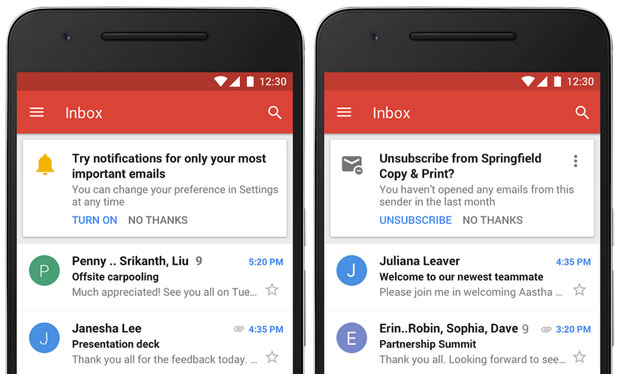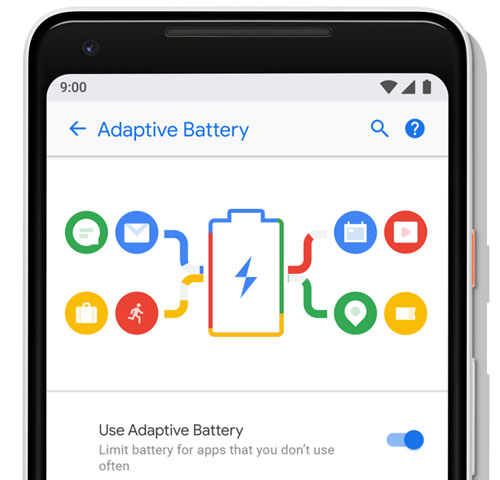Gmail Privacy and Security Get Ruggedized
By Peter Suciu
Apr 26, 2018 5:00 AM PT
Apr 26, 2018 5:00 AM PT

Sell more with the hosting platform built for WooCommerce
Boost your store's speed, get actionable buyer insights, and capture more revenue from visitors with Managed WooCommerce Hosting by Liquid Web.
Google on Wednesday rolled
out a number of new features designed to make its G Suite collaboration
and productivity apps more efficient and safer to use.
G Suite currently has more than 4 million paying business customers, according to Google.The updates include a new design, enhanced security and artificial intelligence components, and better integration of G Suite apps -- including Gmail, which is getting a brand new look.
The overhaul already has been rolled out to some businesses via the G Suite Early Adopter Program. Personal Gmail users can opt in by selecting "try the new Gmail" under Settings.

Those efforts -- which include warning users or automatically moving suspected phishing emails to spam -- already have succeeded in blocking 99.9 percent of BEC attempts, Google noted.
Google will not scan Gmail in any way for the purpose of targeting ads, and no ads will be shown in Gmail for G Suite customers, Google said.
Email Confidential
Google has taken privacy protection up a notch with the introduction of Gmail confidential mode -- a way to protect sensitive content. Options include adding an expiration date feature and allowing users to revoke previously sent messages. Emails also can require additional authentication via a text message before recipients can view them, which could add protection against account hacking.Confidential mode includes built-in information rights management controls that allow senders to bar recipients from forwarding, copying, downloading or even printing messages. This functionality is meant to reduce the risk of accidentally sharing confidential information with the wrong people.
The confidentially mode will be rolled out in the coming weeks.
New Warnings and Tasks
G Suite's Gmail security warnings have gotten a makeover, which should reduce instances of users ignoring them. The new warnings are bigger and bolder.Gmail also has received an artificial intelligence upgrade, including new functionality such as Nudging, Smart Reply and high-priority notifications to help with user productivity.
Nudging, for example, proactively reminds users to respond to messages. Smart Reply, which was introduced last year for mobile devices, has been rolled out to the Web version of Gmail.
The new high-priority notifications are designed to ensure that users are notified only of important messages, so that interruptions can be kept to a minimum.
The in-box has been updated with new tools that allow users to do such things as RSVP to a meeting invitation, archive an email threat, or even snooze an email to postpone handling to a later time.
Gmail has been integrated with other G Suite applications to make it easier to create and edit Calendar invitations and manage Tasks.
Google enhanced the Gmail Adds-ons for better integration with third-party business apps.
How Suite It Is
None of the new features will change fundamentally the way Gmail generally is used, but they should make users feel more secure about sending confidential information via email."Most people will welcome these updates and improvements, though they won't all be equally used," said Greg Sterling, vice president of strategy and insight at the Local Search Association.
"Confidential mode will be widely adopted by enterprise users, and the enhanced security and warnings features are also needed and useful," he told TechNewsWorld.
"The biggest takeaway from the changes to G Suite is Google's focus on providing users more finely grained security and privacy features," noted Charles King, principal analyst at Pund-IT.
"Some of the functions -- the ability to auto-delete messages, revoke previously sent messages, and add 'smart' auto replies -- may look fairly pedestrian," he told TechNewsWorld, "but they're handy features that many business people will appreciate."
More broadly, these features come at a time when many users have been scrutinizing and reconsidering large-scale IT companies' privacy practices, King observed.
"In other words, Google's transparency and its willingness to help users better secure their emails and other work functions couldn't come at a better time," he suggested.
"Overall, these are positive changes," noted LSA's Sterling. "Power users will get the most from them, while ordinary users will probably not take full advantage and will continue to rely on basic email functionality."
 Peter Suciu has been an ECT News Network reporter since
2012. His areas of focus include cybersecurity, mobile phones,
displays, streaming media, pay TV and autonomous vehicles. He has
written and edited for numerous publications and websites, including Newsweek, Wired and FoxNews.com.
Email Peter.
Peter Suciu has been an ECT News Network reporter since
2012. His areas of focus include cybersecurity, mobile phones,
displays, streaming media, pay TV and autonomous vehicles. He has
written and edited for numerous publications and websites, including Newsweek, Wired and FoxNews.com.
Email Peter.
 Jack M. Germain has been an ECT News Network reporter
since 2003. His main areas of focus are enterprise IT, Linux and open
source technologies. He has written numerous reviews of Linux distros
and other open source software.
Jack M. Germain has been an ECT News Network reporter
since 2003. His main areas of focus are enterprise IT, Linux and open
source technologies. He has written numerous reviews of Linux distros
and other open source software.


 Richard Adhikari has been an ECT News Network reporter
since 2008. His areas of focus include cybersecurity, mobile
technologies, CRM, databases, software development, mainframe and
mid-range computing, and application development. He has written and
edited for numerous publications, including Information Week and Computerworld. He is the author of two books on client/server technology.
Richard Adhikari has been an ECT News Network reporter
since 2008. His areas of focus include cybersecurity, mobile
technologies, CRM, databases, software development, mainframe and
mid-range computing, and application development. He has written and
edited for numerous publications, including Information Week and Computerworld. He is the author of two books on client/server technology.





 Vivian Wagner has been an ECT News Network reporter
since 2008. Her main areas of focus are technology, business, CRM,
e-commerce, privacy, security, arts, culture and diversity. She has
extensive experience reporting on business and technology for a variety
of outlets, including The Atlantic, The Establishment and O, The Oprah Magazine.
She holds a PhD in English with a specialty in modern American
literature and culture. She received a first-place feature reporting
award from the Ohio Society of Professional Journalists.
Vivian Wagner has been an ECT News Network reporter
since 2008. Her main areas of focus are technology, business, CRM,
e-commerce, privacy, security, arts, culture and diversity. She has
extensive experience reporting on business and technology for a variety
of outlets, including The Atlantic, The Establishment and O, The Oprah Magazine.
She holds a PhD in English with a specialty in modern American
literature and culture. She received a first-place feature reporting
award from the Ohio Society of Professional Journalists.


 John P. Mello Jr. has been an ECT News Network reporter
since 2003. His areas of focus include cybersecurity, IT issues,
privacy, e-commerce, social media, artificial intelligence, big data and
consumer electronics. He has written and edited for numerous
publications, including the Boston Business Journal, the
Boston Phoenix, Megapixel.Net and Government
Security News.
John P. Mello Jr. has been an ECT News Network reporter
since 2003. His areas of focus include cybersecurity, IT issues,
privacy, e-commerce, social media, artificial intelligence, big data and
consumer electronics. He has written and edited for numerous
publications, including the Boston Business Journal, the
Boston Phoenix, Megapixel.Net and Government
Security News. 